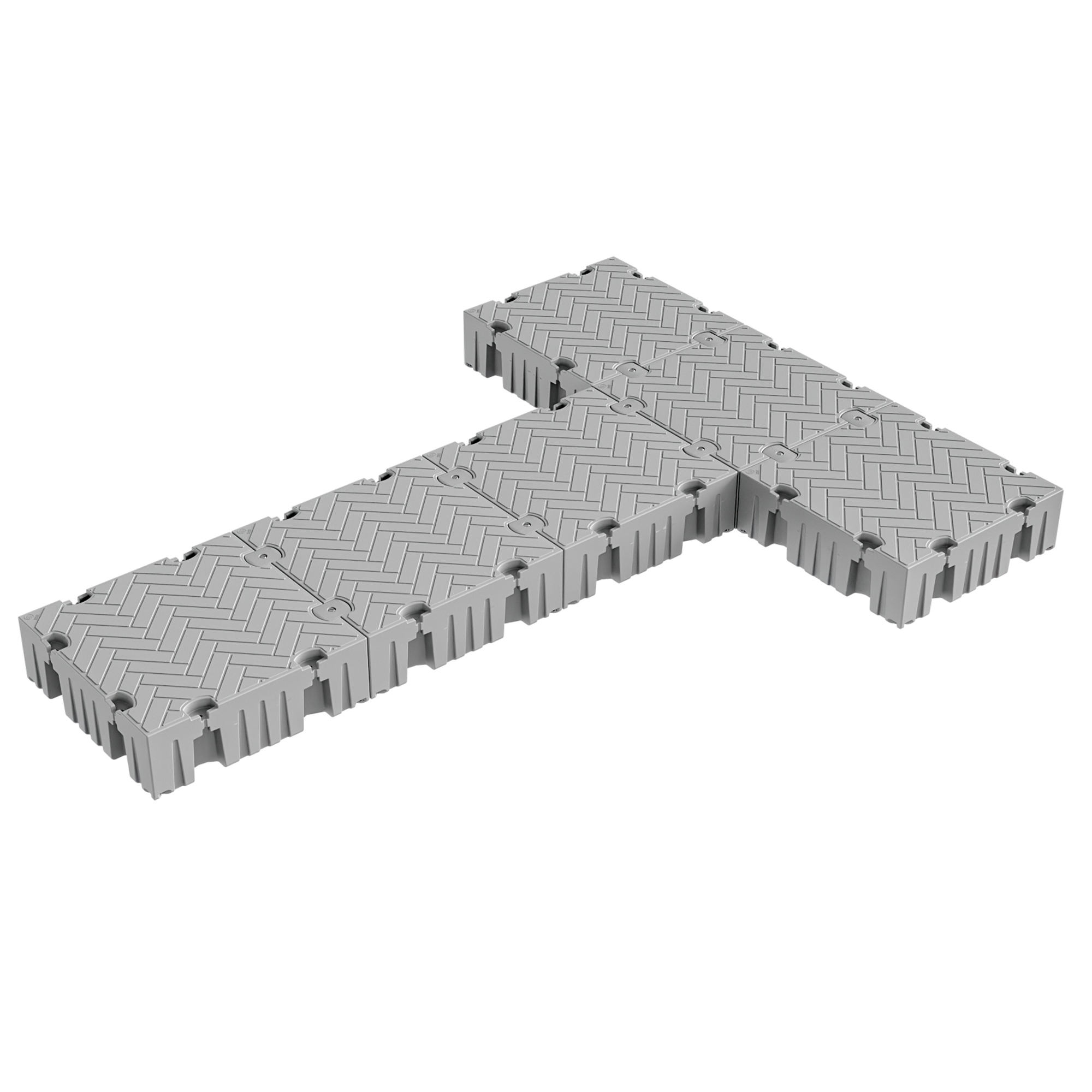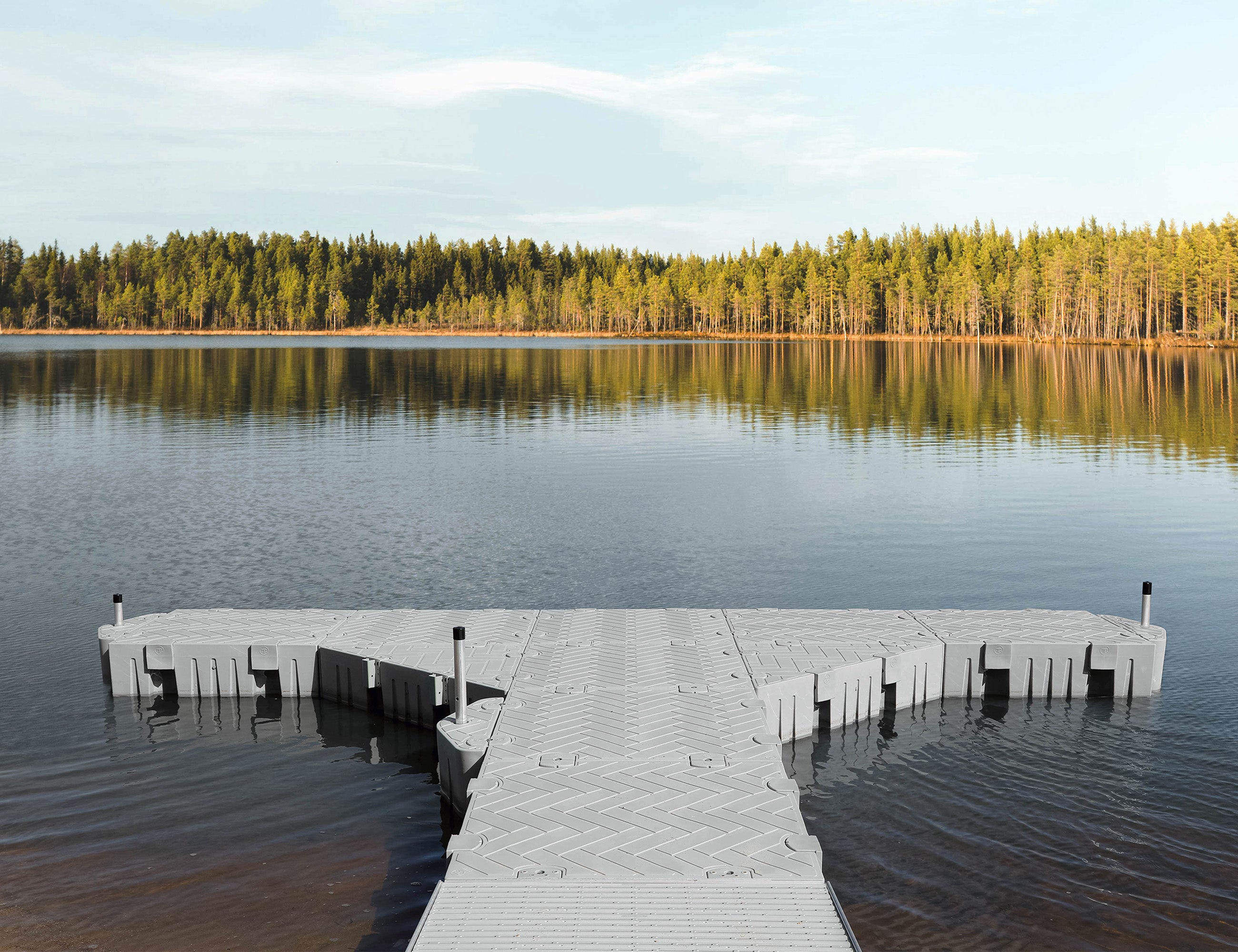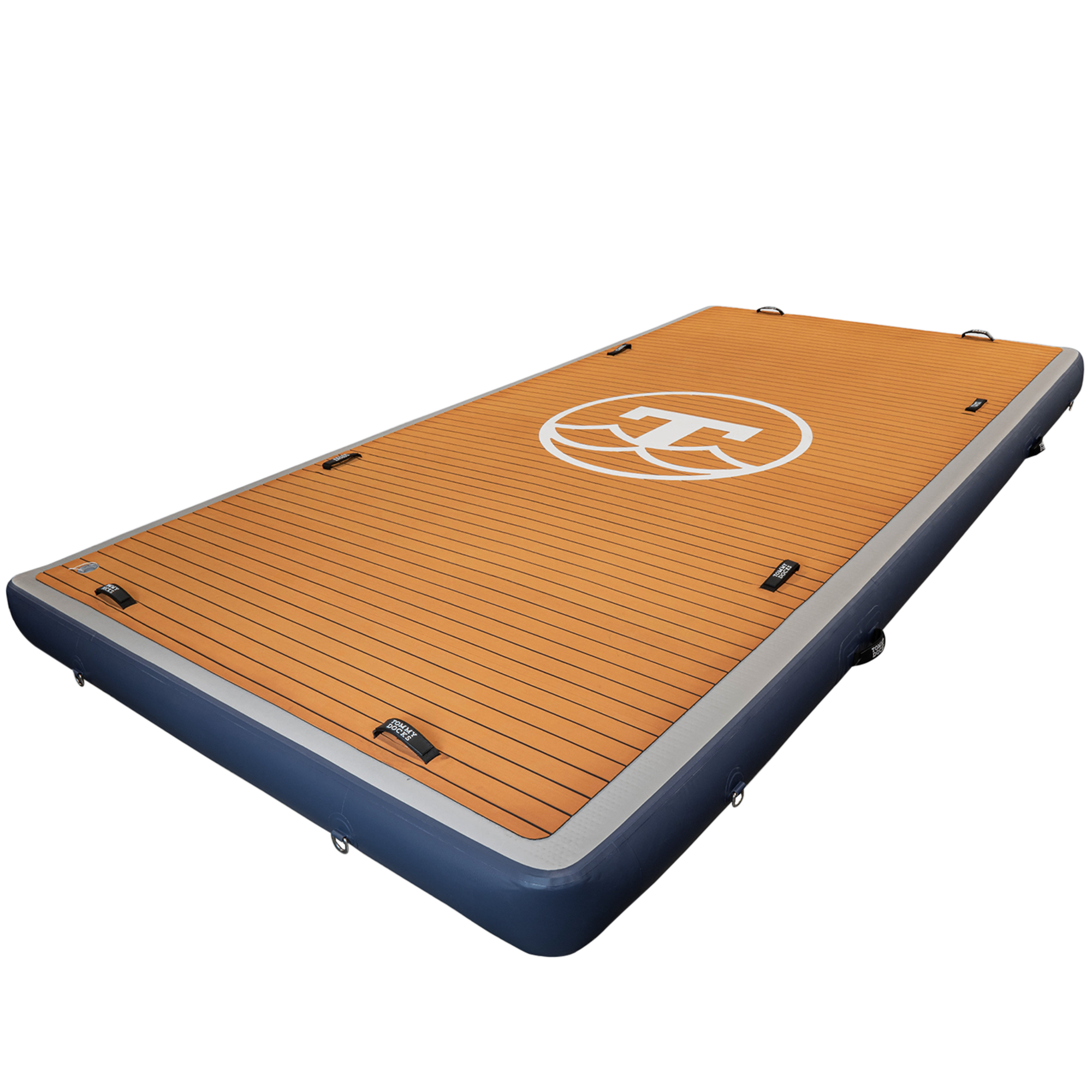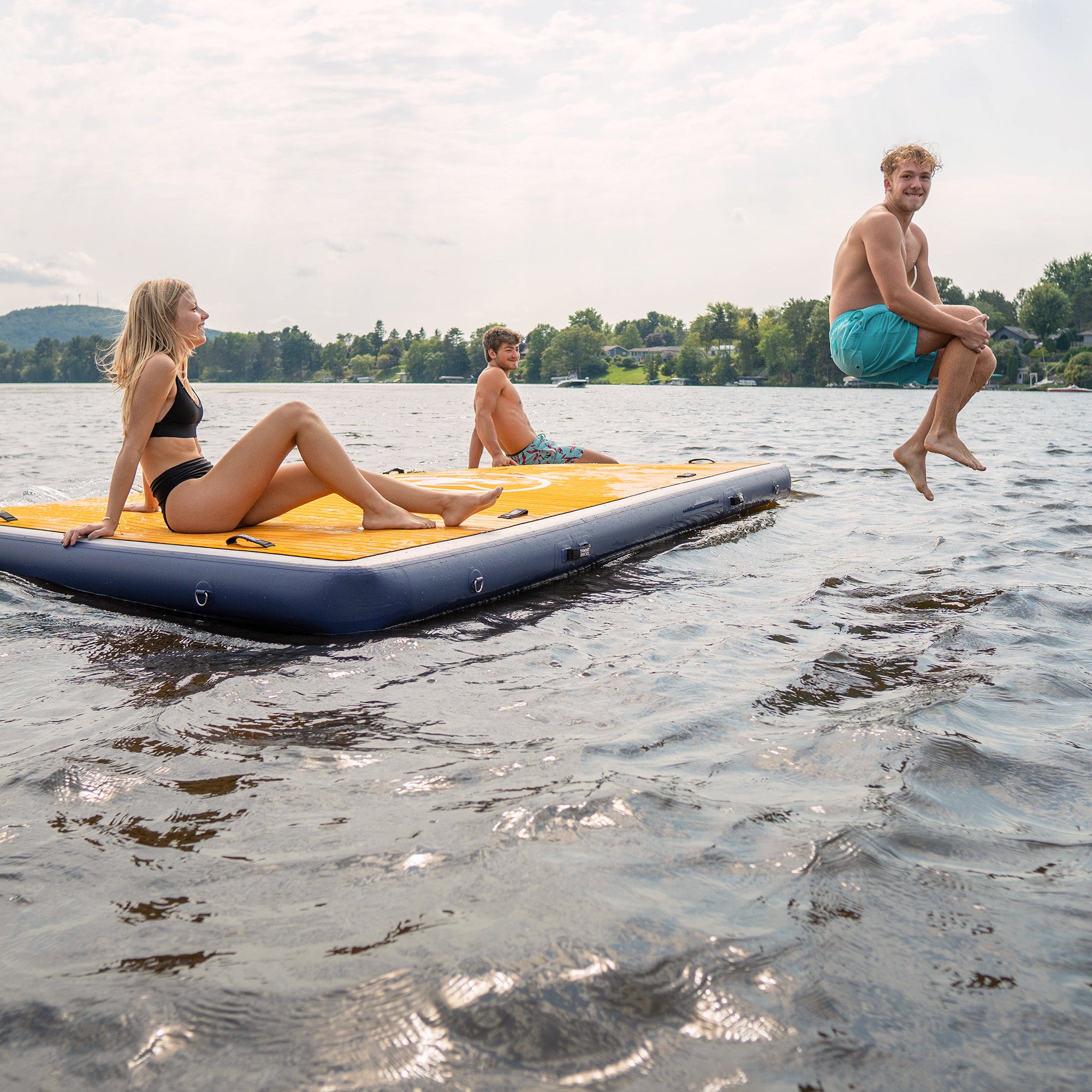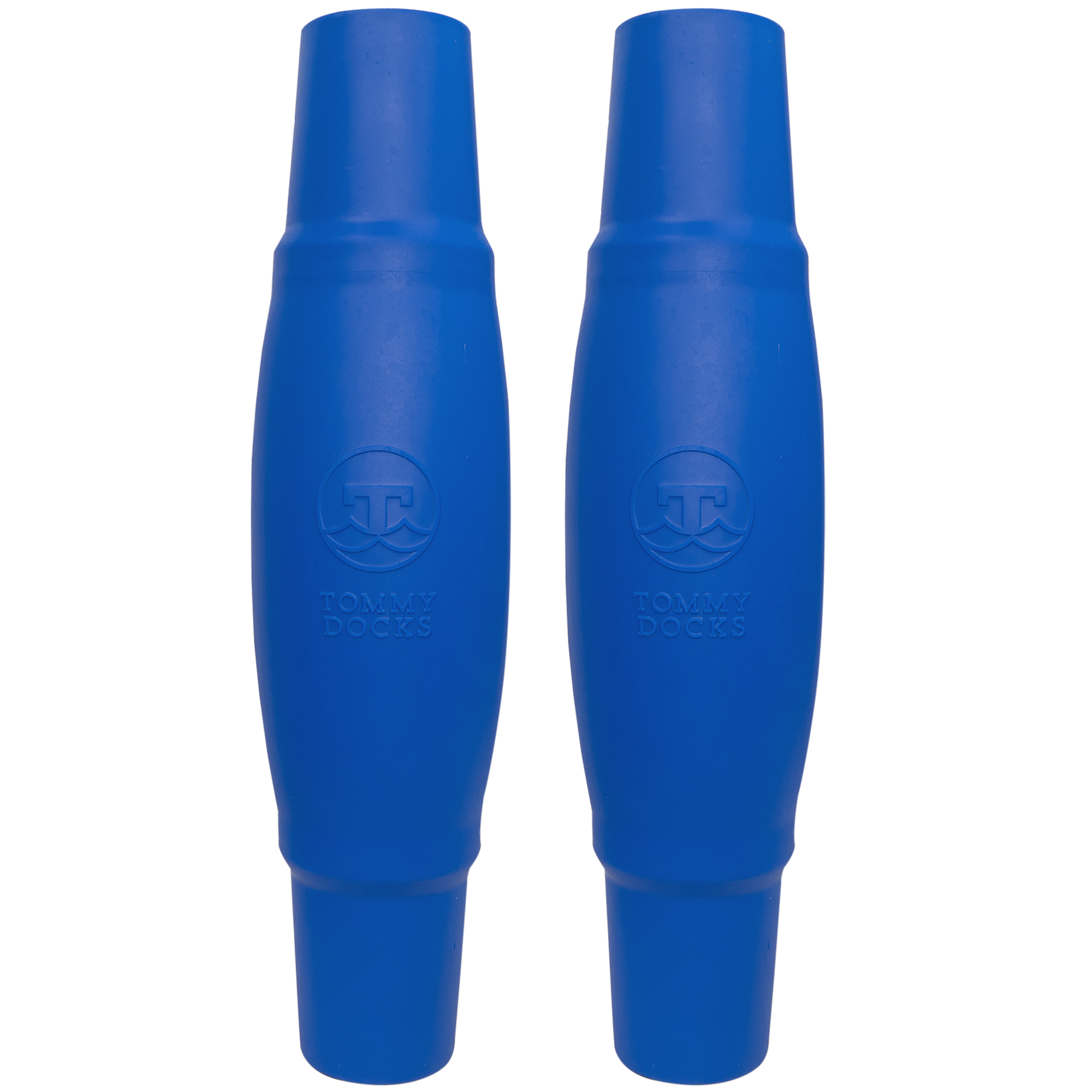Are you trying to figure out which type of dock is best for your lakefront property? We get it. There are a lot of tough choices that come with the decision to build a dock. To give you a hand, we’ll go over some of the most important logistical factors to consider when choosing the right dock for your lake shore. Let’s dive in.
Best Docks for Lakes with Rough Water or High Traffic
Floating docks are ideal if you’re in a storm-prone area or live on a lake with choppy water. Of course, any type of dock can sustain damage from a storm and should not be exposed to hurricane conditions. However, a floating dock can move along with the waves, protecting your boat, or any other docked watercraft, from banging into the dock.
Still, if you live on a high-traffic lake, you and your crew may enjoy a fixed dock since it will serve as a more stable platform for entertaining than a floating dock that bobs up and down with every passerby’s wake.
Let’s talk about how water levels might influence your choice.
Best Docks for Lakes with Changing Water Levels
Floating docks are great for lakes with changing water levels since they rise and fall with the water levels. This adaptability ensures easy access and docking despite drastic changes in water levels. However, you’ll want to ensure the water does not get so shallow that the dock scrapes on the ground.
On the other hand, stationary docks are suitable for shallow water and are ideal for depths from about 4 to 10 feet.
How does the lake bottom impact your dock decision?
Best Docks for Lakes and Ponds with Mucky Beds
Some lakeshore property owners worry that their lake bed won’t support just any dock. True, the lake bottom is an important consideration when choosing a dock.
“For a lake shore with a gradual depth increase or a soft, muddy bottom, floating docks will probably work best. Docks that rely on underwater supports need a firm lake bed to avoid gradual sinking,” advises Family Handyman, adding, “On the other hand, if your body of water has firm, quickly deepening shoreline and you want to avoid the time and trouble of installing and removing your dock every year, a permanent dock probably makes more sense for you.”
Tommy Docks offers several types of fixed dock feet to suit various lake bottom conditions, giving DIY dock builders the freedom to opt for a fixed dock, even in a mucky lake. For example, our muck footpads are ideal for mucky lake bottoms, auger feet for soft soil bottoms, and regular footpads for solid lake bottoms.
Still, if you want to skip dealing with the muck, our floating dock systems are a great option.
Best Docks for Lakes That Freeze
Floating docks are best for lakes that experience freezing temperatures in the winter. Why? Because floating docks can be removed from the water more easily for winterization.
Of course, you may also consider a roll-in dock system that can be easily rolled out of the water during the icy winter months.
Best Fixed and Floating Docks for Lakes
Ultimately, landing on the best floating dock or stationary dock for your lake property is totally your call. Beyond the considerations above, don’t forget to factor in style, comfort, budget, intended use, and whatever else is important to you.
Still, no need to stress. You can rest easy when you get your dock from Tommy Docks. We offer a full selection of floating docks, stationary docks, rolling docks, and more. Browse our stylish, functional, and DIY-friendly dock collection to find the best dock for your lake.


